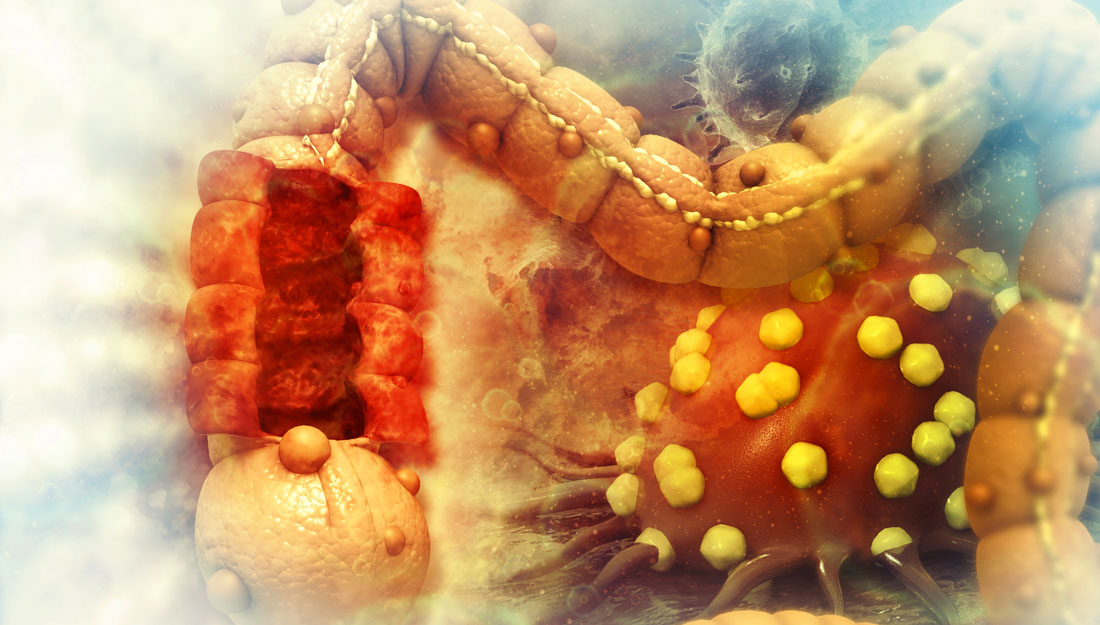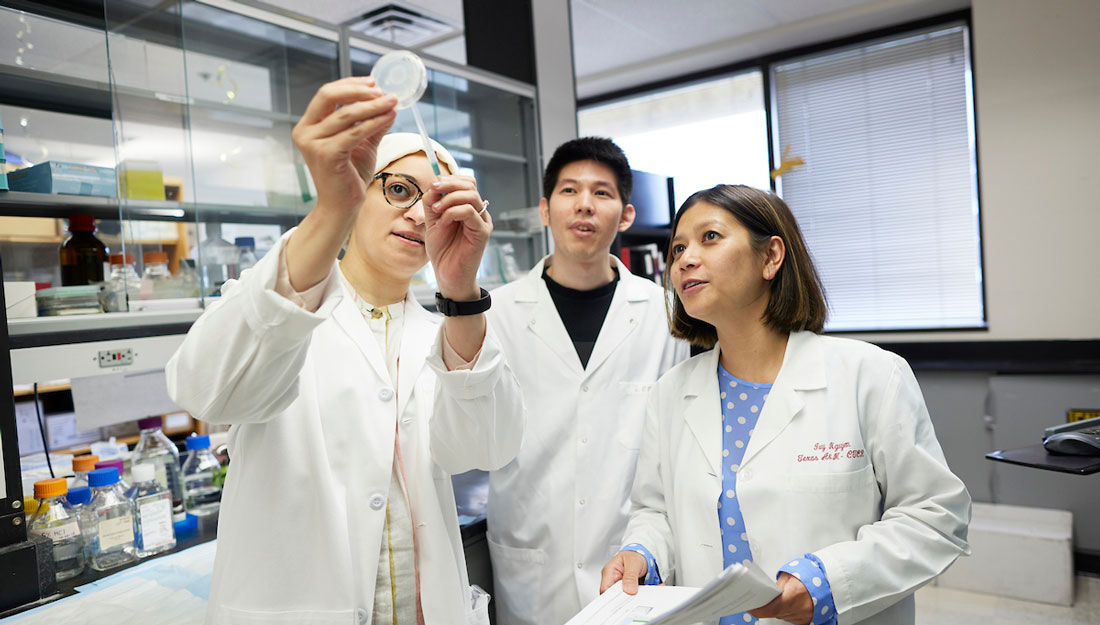- Grayson Kotzur
- Biosciences & Technology, COVID-19, Medicine, Research, Show on VR homepage
Colorectal cancer and COVID-19: Inhibitors to combat both
Recent study sheds light on the link between colorectal cancer and COVID-19 and reveals a potential way to target the crosstalk

Research has uncovered a link between colorectal cancer and COVID-19. A new study from Texas A&M suggests a possible therapeutic that targets this link. (Adobe Stock)
A new study from the Texas A&M Health Institute of Biosciences and Technology suggests that drugs called bromodomain and extraterminal domain (BET) inhibitors could help reduce the risk of colorectal cancer and COVID-19. The study found that colon cancer cells have more of a protein called ACE2, which the COVID-19 virus uses to infect cells. By targeting the ACE2 protein, doctors may be able to help prevent both COVID-19 and colorectal cancer.
Roderick Dashwood, PhD, Distinguished Professor at the Texas A&M University School of Medicine and lead researcher in the study, says cancer patients have a higher risk of COVID-19 due to their immunocompromised conditions. He says this study shows that targeting the axis between ACE2 and the BET protein BRD4 could make a difference.
The findings imply that ACE2 causes enhanced tumor growth and that high ACE2 expression on tumor and normal colorectal epithelial tissues can decrease patient survival when combined with high BRD4 expression. To reduce the amount of ACE2 and prevent COVID-19 from entering cells in colorectal cancer, the researchers suggest repurposing BET inhibitors, which are known to effectively downregulate growth promoting targets in cancer cells.
Altering the amount of ACE2 in human colon cancer cells experimentally, or by using so-called epigenetic drugs, caused marked changes in DNA damage/repair and apoptosis. Specifically, JQ1 and its analogs down-regulated the ACE2 cell surface receptor, suggesting the potential for future therapeutic strategies.
“Precision oncology approaches that target specific BET proteins may benefit colorectal cancer patients with high ACE2 plus high BRD4 expression,” said Praveen Rajendran, PhD, associate professor, and co-lead in the study.
BET inhibitor treatments for colorectal cancer patients with COVID-19 infections remain in their infancy and require further investigation, but results have shown possible future therapeutic benefits.
“This research unravels the yin-yang of colorectal cancer and COVID-19 susceptibility and provides a new perspective on how we can approach the diagnosis and treatment of colorectal cancer in the context of COVID-19,” Dashwood said.
The researchers further explain the study in the Nature Cancer Community blog. Other authors in the Center for Epigenetics & Disease Prevention (CEDP) at Texas A&M Health included Shilan Zhang, Sabeeta Kapoor, Chakrapani Tripathi, Jorge Tovar Perez, Nivedhitha Mohan, Wan Mohaiza Dashwood, and Ke Zhang. Funding came from National Institutes of Health grants, the John S. Dunn Foundation, and a Chancellor’s Research Initiative.
Media contact: media@tamu.edu


